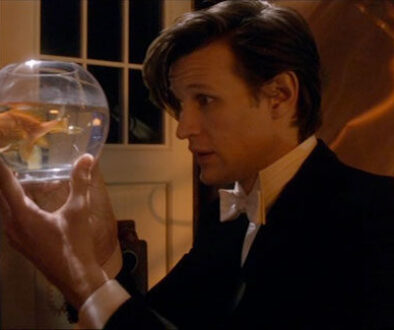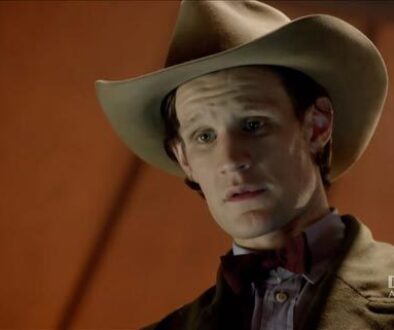Graham on Rory’s Deaths & Eyeballs

SFX has a new interview with Matthew Graham, writer of The Rebel Flesh. Although a lot of the same ground is covered as the previous interview
, there are some interesting bits, including his thoughts on Rory dying all the time.
Most of the previews of this story have used the word “traditional” somewhere (including ours). Was your intention always to create a more “trad-Who” adventure?
It wasn’t part of my brief. It was just that, with the story I needed to tell, there was no point in overcomplicating it in terms of structure. I think what’s going to be a lot of fun about this story is that it’s a Frankenstein’s monster tale and complexities that comes out of the story are moral and social complexities rather than timey whimey stuff.
So there didn’t seem to be any point in telling the story backwards, or throwing structural curveballs at the audience. It’s a big enough challenge for writers to just tell a good solid story in real time. Everything is in right the right order. I’m drawing more Troughtonesque references. I’m tapping into my inner Patrick.
Will people be calling the second part “traditional” as well, or are there surprises in store?
I think partly why everybody is mentioning the traditional thing is partly that it’s coming off the back of one, two and four… I mean four is linear but it is unusual. It’s a beautiful character study rather than a thriller, isn’t it? And then you go into a two-parter, and the nature of two-parters is that often that first episode is, to some degree, a set-up, and it’s very hard to avoid that, really. So I think there is a feeling that episode five is – hopefully enjoyable and exciting – but more of a kind of, “We’re setting up the stakes, then we’re ratcheting the stakes up at the end.”
Six twists and turns, but not structurally. It has twists and turns around the characters that might surprise you, and may even disturb you. Stuff goes on in “The Almost People” that you wouldn’t have seen, I don’t think, in the David Tennant era. And I mean that in a good way. It’s another thing that makes this era distinct and different from the previous era.
Has Steven been giving the writers an edict that Rory must die in every episode?
Does he die in every episode? I suppose he does! He does die a lot. That’s a good point. You know what, with any other showrunner I’d say, “Oh, I dunno, they probably don’t know what they’re doing.” But if anyone has a masterplan about Rory’s multiple deaths, it’ll be Steven. But I will be the last to know.
How scary were you allowed to be? Did you feel you could go slightly further?
Definitely, definitely. Steven was very clear. He said scare them. Right from the start. So, yeah. When I saw some of the stuff in five and six, even I was quite surprised. There are things that in “The Rebel Flesh” and particularly “The Almost People” where I was thinking, “That’s actually quite nasty!” Yeah, I think they are pretty scary.
It’s only adults that worry about it being too scary for children. Children love it. And it’s hard to scare kids these days because the average video game is scarier than most Doctor Who episodes from the ’60s and ’70s. But it’s scary in simple ways. It’s not scary in terms of violence. It’s scary in terms of staring eyes. I mean, if you don’t like staring eyes, do not watch episode six. It’s eyeballs-a-go-go in episode six. I should have called it “Eyeballs-A-Go-Go”.
Check out more here.







